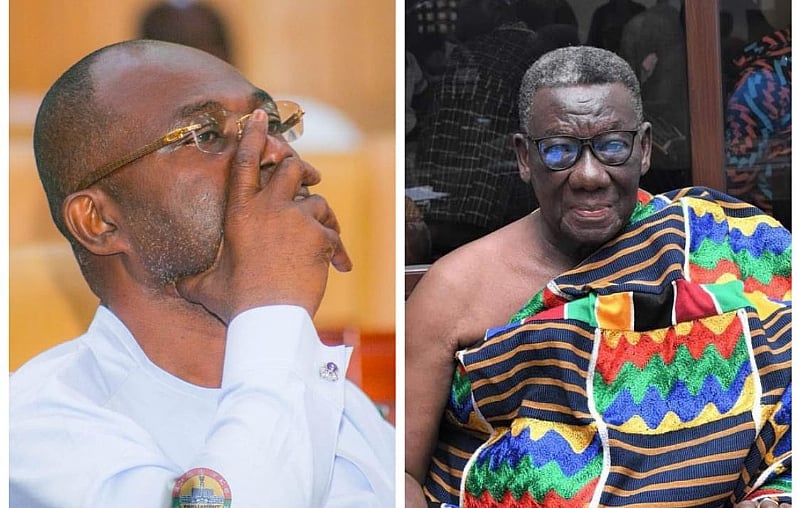The passing of Daasebre Osei Bonsu II, the Mamponghene and occupant of Asanteman’s silver stool, has cast a pall of grief over the Ashanti Kingdom and Ghana as a whole. At the age of 86, Daasebre Osei Bonsu II concluded a life marked by decades of dedicated service to his people and the nation. His contributions extended beyond the traditional boundaries of chieftaincy, encompassing significant roles within the National House of Chiefs and a steadfast commitment to promoting good governance, the rule of law, political tolerance, and economic empowerment, particularly for the youth. The news of his demise was formally conveyed to the Asantehene, Otumfuo Osei Tutu II, by the Mampong Traditional Council and the Bretuo Dynasty, adhering to the established customs of the Asante Kingdom.
Daasebre Osei Bonsu II’s legacy is one of profound impact on the Asante Kingdom and Ghana. He embodied the ideals of a traditional leader deeply invested in the well-being and progress of his people. His advocacy for good governance and the rule of law provided a steady hand in navigating the complex landscape of traditional and modern governance. He championed political tolerance, fostering an environment of respectful dialogue and peaceful coexistence. His focus on economic empowerment, particularly for the youth, underscored his vision for a prosperous future for his community and the nation.
The late Mamponghene’s unwavering commitment to these principles resonated deeply within the Asante Kingdom and beyond. He served as a respected voice within the National House of Chiefs, contributing his wisdom and experience to deliberations of national importance. His influence extended to the political sphere, where he advocated for policies that promoted the welfare of all Ghanaians. His dedication to youth empowerment laid the foundation for a brighter future, equipping young people with the tools and opportunities to thrive.
The void left by Daasebre Osei Bonsu II’s passing is immense. He was not just a custodian of tradition but a driving force for positive change. His leadership transcended the ceremonial, actively shaping the social, political, and economic landscape of his domain. He epitomized the role of a modern traditional leader, bridging the gap between ancient customs and contemporary challenges. He leaves behind a legacy of service, integrity, and vision that will continue to inspire generations to come.
Tributes have poured in from across the nation, reflecting the widespread respect and admiration for the late Mamponghene. Political figures, traditional leaders, and ordinary citizens have all expressed their sorrow and acknowledged his significant contributions to Ghana. His loss is felt deeply not only within the Asante Kingdom but throughout the country, as he was a figure of national stature whose influence extended far beyond the borders of his traditional domain.
The passing of Daasebre Osei Bonsu II marks the end of an era. His life and work serve as a testament to the enduring power of traditional leadership in contemporary society. He demonstrated that tradition and modernity can coexist and complement each other, driving progress and fostering unity. His legacy will continue to inspire future leaders to embrace the values of good governance, the rule of law, and the empowerment of all citizens, particularly the youth, to build a stronger and more prosperous Ghana. His memory will be cherished, and his contributions to the nation will forever be remembered.














